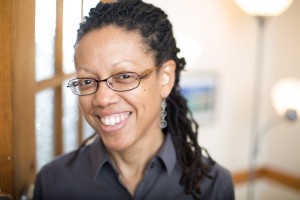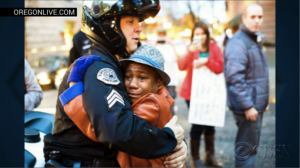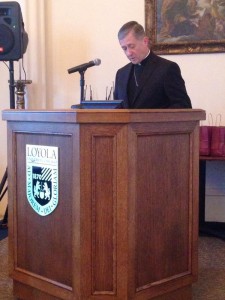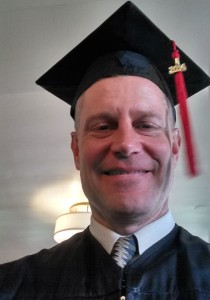Timone Davis began teaching at IPS in Fall 2014 as an adjunct professor. In the short amount of time she has been here, she has brought exceptional and transformative learning experiences to our students. With that said, join us in congratulating her on becoming a full time faculty member beginning Fall 2015.
Timone has been very busy with several small projects and looks forward to being “less scattered” with her full time role at IPS. “I will be able to put more energy in one place and therefore, have a greater impact on the lives of ministers in training,” commented Timone.
She has been with the Augustus Tolton Pastoral Ministry Program at Catholic Theological Union since 1996. She began there as a student and then transitioned to being the Formation Director. Her role there will come to an end this May, but she owes a lot of her growth in spirituality to her time there. “I learned how to devote myself to helping other people come to an awareness of God in their own lives,” she said.
Timone wants to bring a similar experience to her students. In her classes (descriptions below) she said, “students can expect to dig deep for a level of honesty that is not always explored in classes. I will ask to make themselves vulnerable and be challenged not just by the material, but also in the call to witness to the gospel.”
For Timone, the most challenging part of being a teacher is being adequately prepared. “I always want to make sure I am giving my students enough information as possible in order for them to move ahead in whatever they are being called to do.”
Fortunately, she also finds her job very rewarding. Timone says she loves the “aha” moments when students “get it.” She strives for those moment where students are able to take what they are learning in the classroom and apply it outside the classroom. She understands the importance of students not just repeating back information, but rather being able to connect what they are learning to experiences in their own lives.
Outside of her professional life, Timone enjoys watching murder mysteries and cop shows. She also listens to audio books and reads books both electronically and in hard copy. Like most of us at IPS, she also loves good food.
You can connect with Timone on Twitter, LinkedIn and YouTube. You can also hear her speak at The Racial Divide in the United States event on March 11.
Fall 2015 class descriptions:
Black Spirituality and Pastoral Care
This course will introduce students to Black Spirituality in the United States, from slavery to the present, in a Christian context. The course will be attentive to the culture of black life so as to get a better understanding of Black Spirituality’s rootedness in scripture, prayer, community and justice. Students will explore how Black Spirituality can be a lens through which they view pastoral care for persons on the margins while enhancing their own spirituality. This course will include scholarship on such themes as African-American ways of being, preaching, storytelling, dance, art, mentoring and self care.
Women in the Church: Bound Freedom
Often seen as the backbone of many churches, this course will explore how women are both free to explore and hold various roles/positions in the Christian Church while simultaneously beset with patriarchy and exclusion. Students will explore the rise of women in the Church and the constant struggle to be seen as an equal. This course will be attentive to Mujerista, Womanist, Asian and Feminist perspectives in the Protestant and Roman Catholic Church of the United States that continue to shape the landscape of women in ministry.
Join the conversation by following @BrianSchmisek on Twitter and @LoyolaIPS on Instagram! Also, network with the Loyola Chicago IPS community on LinkedIn.




